By Donald H. Harrison
SAN DIEGO — Melanie Rubin, our fellow enthusiast
for Jewish license plates, recently spotted Khai 18, which sends not
one but two interesting messages.
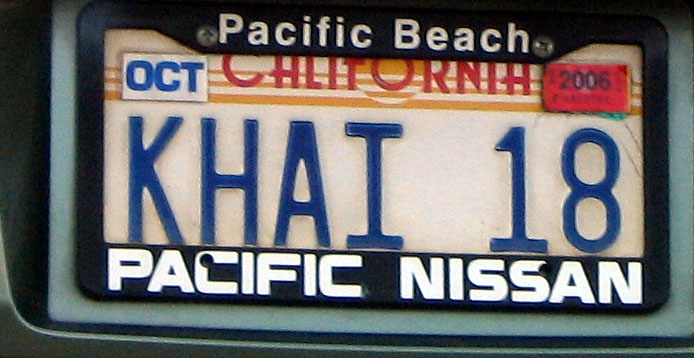 Khai is an alternate spelling for the Hebrew word Chai (life) as
in the famous toast, L'chaim! To Life!" Some people prefer
it to Chai because English speakers have a tendency to read the "ch"
with the same sound that combination makes in the word "child"
rather than with the sound made by the letter chet. By switching
the first letter from a "c" to a "k" it alerts people that
there is a different pronunciation.
Khai is an alternate spelling for the Hebrew word Chai (life) as
in the famous toast, L'chaim! To Life!" Some people prefer
it to Chai because English speakers have a tendency to read the "ch"
with the same sound that combination makes in the word "child"
rather than with the sound made by the letter chet. By switching
the first letter from a "c" to a "k" it alerts people that
there is a different pronunciation.
Another reason some people prefer the Kh alternate is because, especially in
the United States, we tend to see messages from merchants that read
"Merry Christmas and Happy Chanukah." In that the spelling of
the two holidays start with the same two first letters, and to the vast
majority of Americans, "Christmas" is the better known holiday, it
is easy to understand why people might try to pronounce "Chanukah"
with the same "ch" sound as in "Christmas." It's
closer than the "ch" of "child" but it still doesn't quit
match the sound of the letter chet. On the other hand, the
problem with the 'kh" construction is that the sound that it makes in
English, such as in "khaki," doesn't quite match the "chet"
either. But, at least, the "kh" construction does make the
reader stop and wonder just how to pronounce the word it is used in..
In addition to a message about orthography, this interesting license plate
also notes the numeric equation between the Hebrew word meaning
"life" and the number "18." In Hebrew, before 1, 2,
3... was used, the alphabet was also used to express numbers. The first
letter of the alphabet, or alef-bet, is the alef, א.
It had a numerical value of 1. The second letter, 'bet.' ב,
has a numerical value of 2, and onward through the alphabet, each
letter has been assigned a value. "Chai" or "Khai,"
in this case, is spelled Chet (or Khet, in this case), ח,
followed by Yud, י.
The Chet/Khet is worth 8; the yud is worth 10. Adding 8
plus 10, one gets 18. So the Hebrew word for "life" has a
Hebrew numerical value of 18. As Hebrew is written from right to left (as
opposed to English which is written left to right), chai (or khai)
is spelled 'ח.
One is fortunate to have a life, and the number "18" therefore is
considered lucky. Many Jews wear 'ח
pendants around their necks for luck. Many Jews also like to give
charitable gifts in denominations of 18, to bring luck to both the giver and
the receiver.
All that in a license plate! No wonder Melanie Rubin and
others—like me—consider them fascinating. Here's where our
collection stands as of today. As always, please send in any Jewish interest
license plate you spot to sdheritage@cox.net
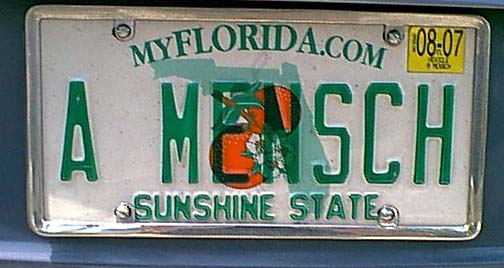
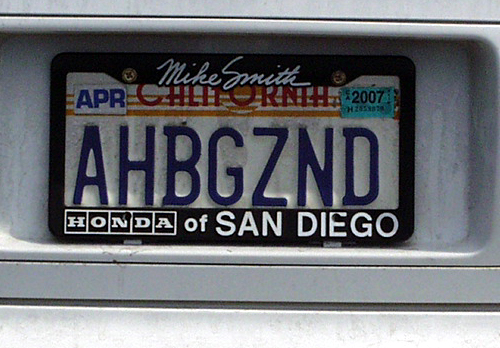
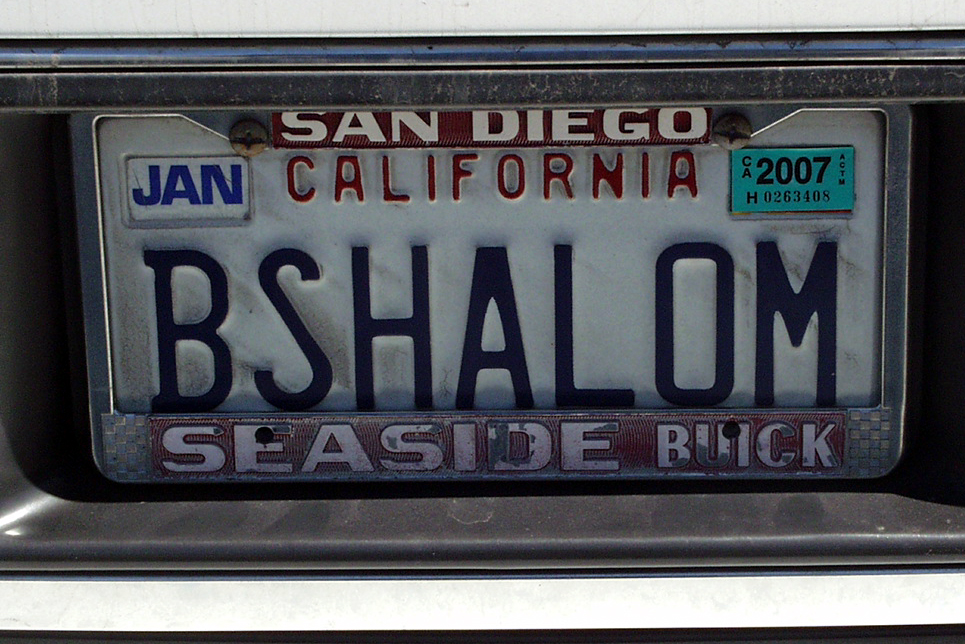
Yiddish: Upright, outstanding
person Yididish: For you, only good
Hebrew: In
peace
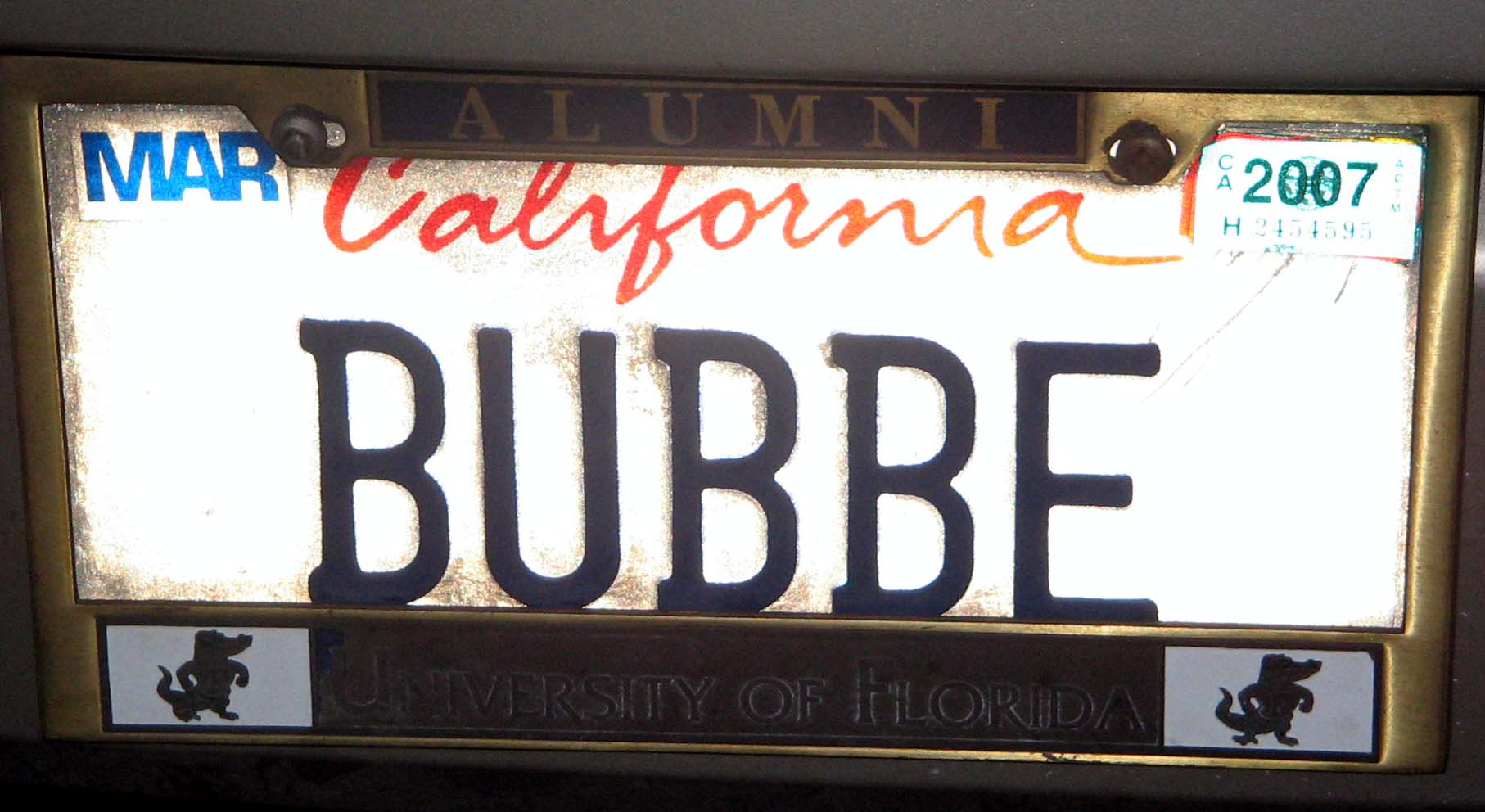
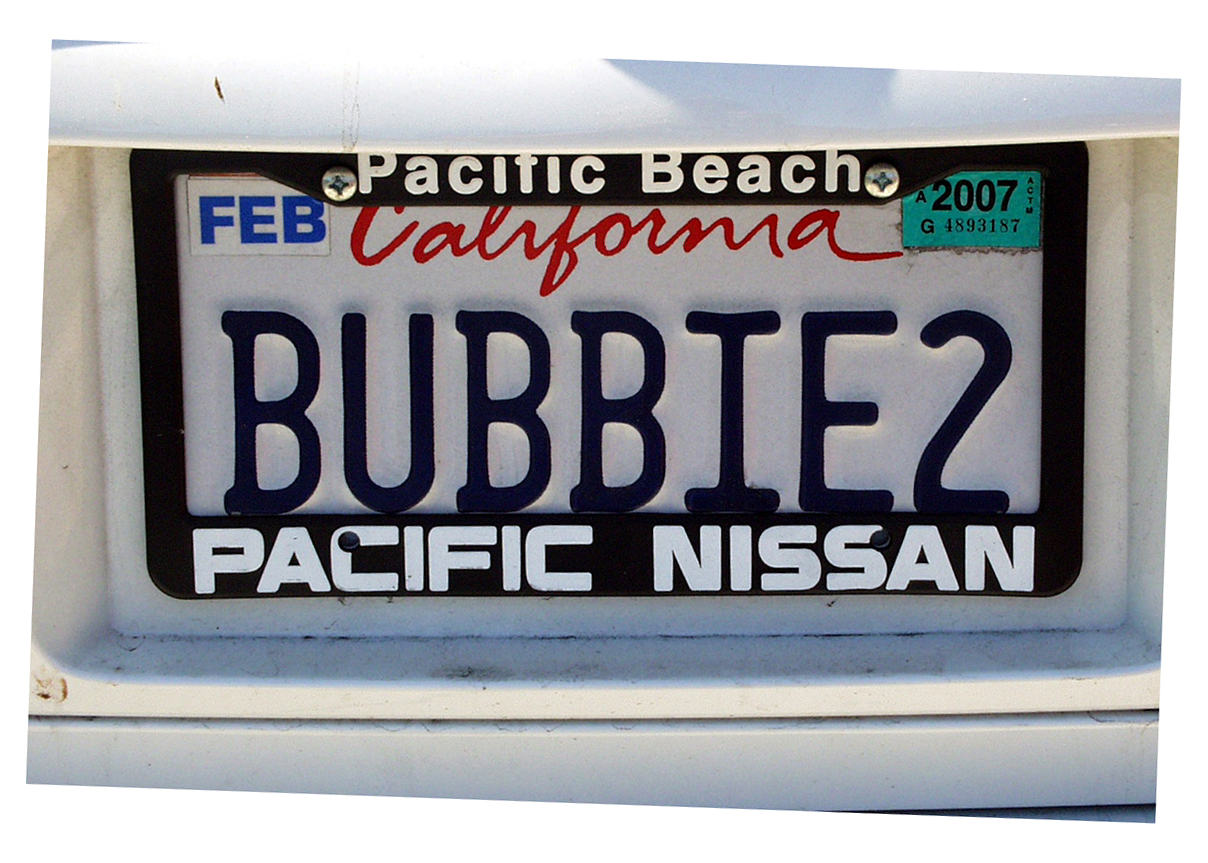
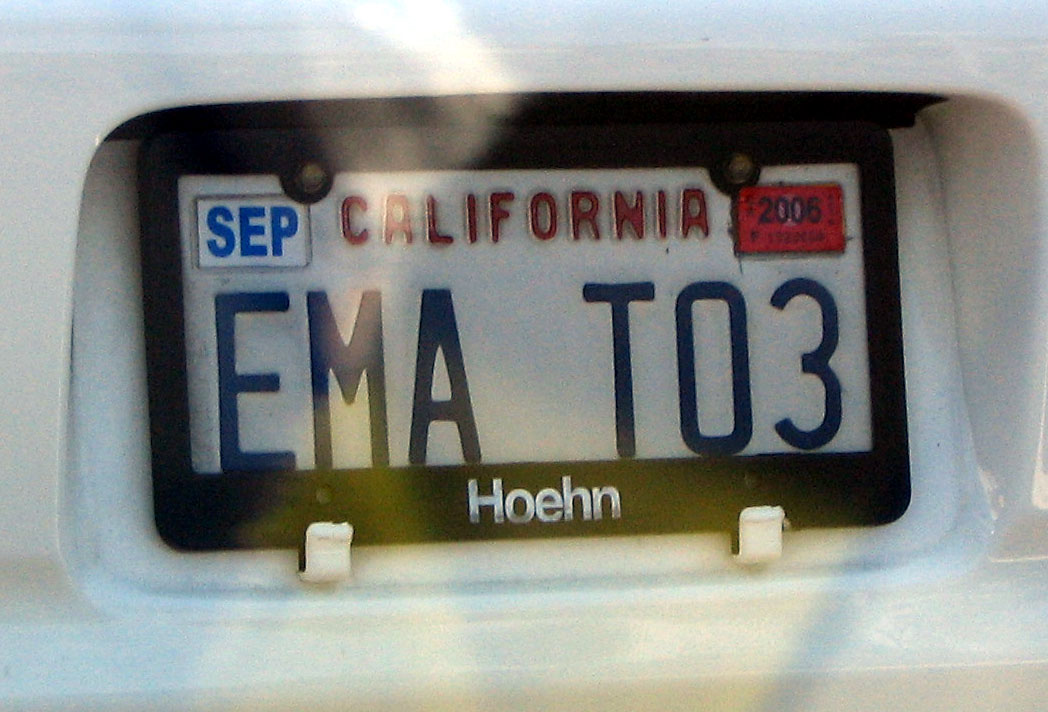
Yiddish: Grandma
Yiddish: Grandma
2
Hebrew & English: Mother to 3
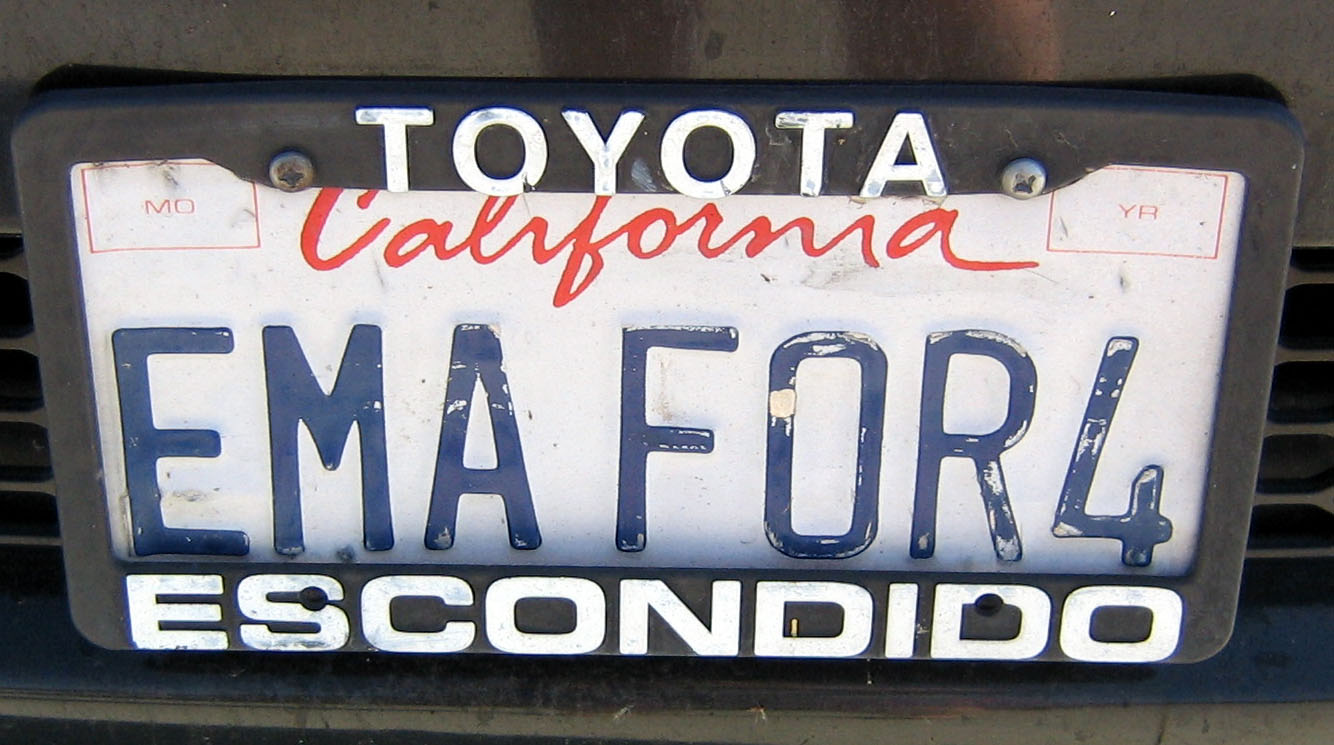

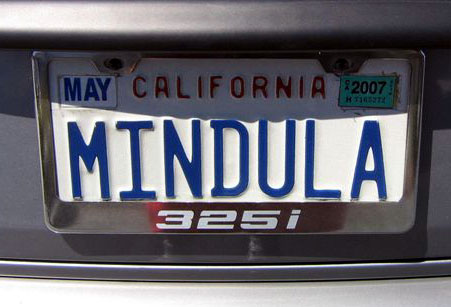
Hebrew & English: Mother for
4
Hebrew: Life
18
Yiddish: Little Mindy
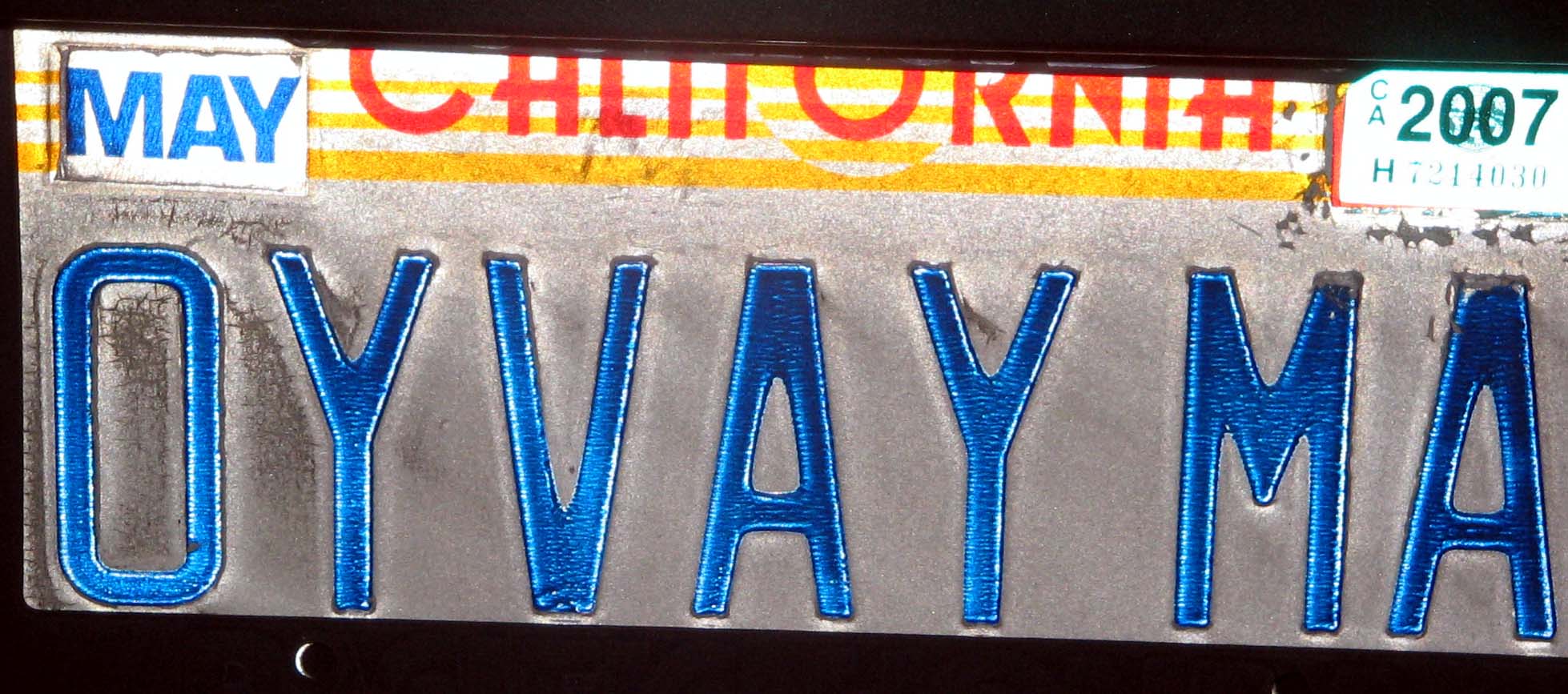
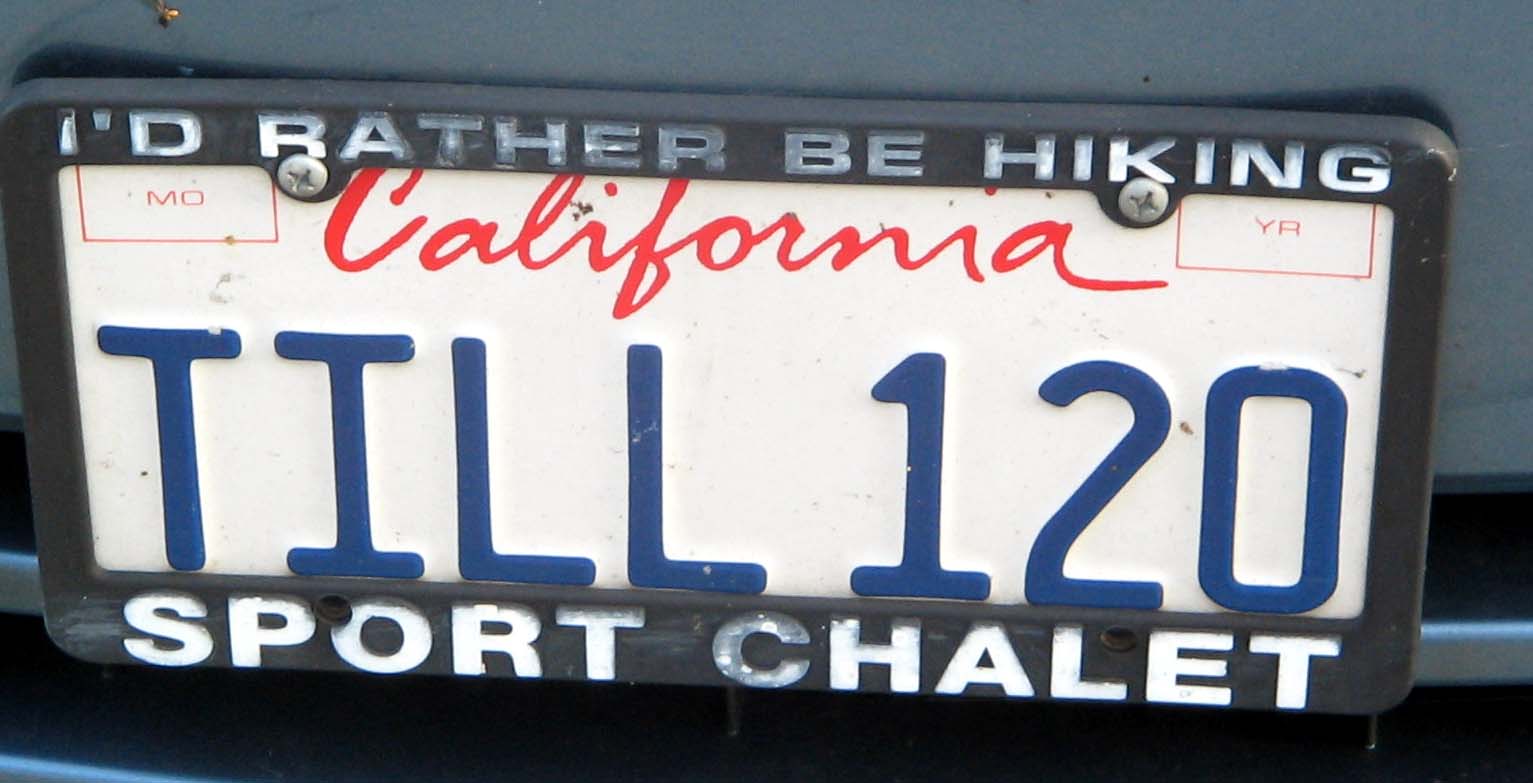
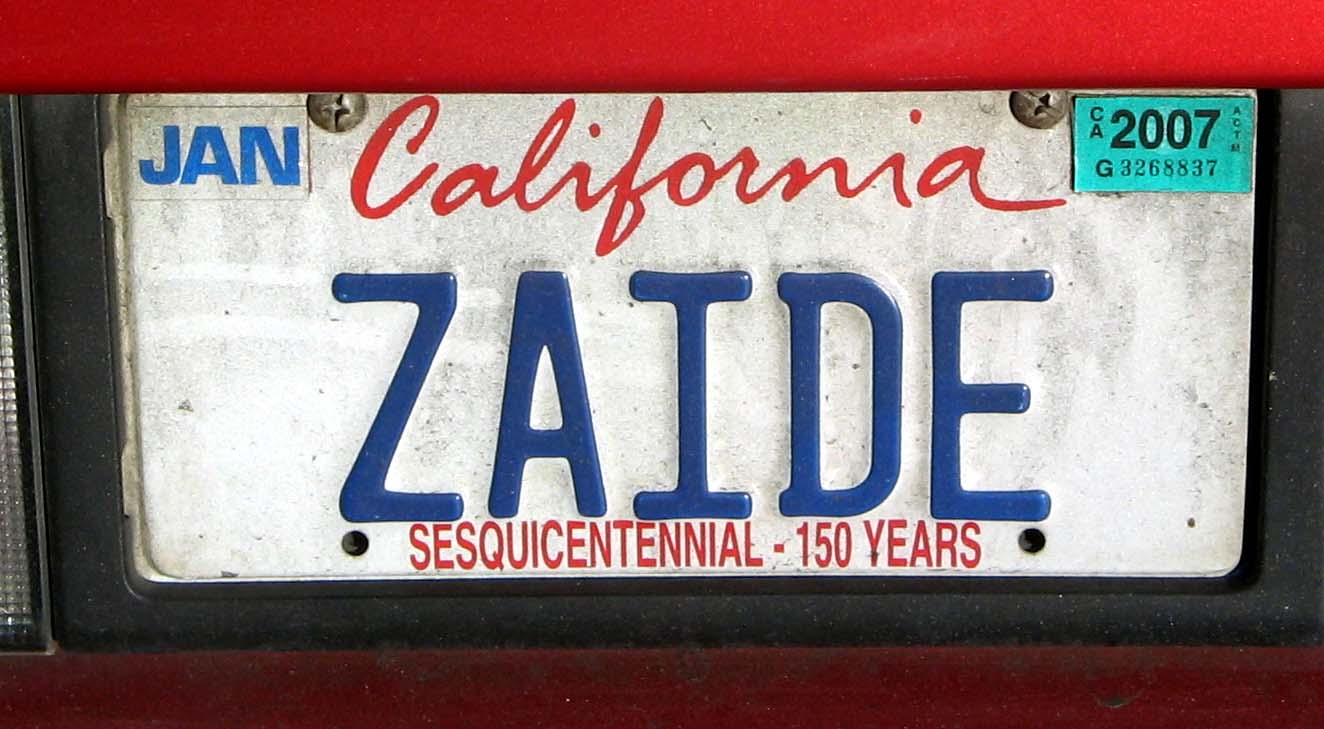
Yiddish: Woe is me,
Ma
Biblical: A life as long as
Moses Yiddish:
Grandpa

